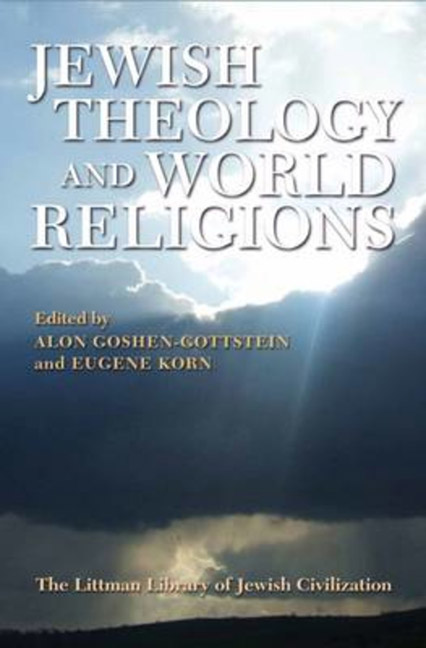Book contents
- Frontmatter
- Dedication
- Preface
- Contents
- Note on Transliteration
- Towards a Jewish Theology of World Religions: Framing the Issues
- PART I PHILOSOPHICAL PERSPECTIVES ON JEWISH PLURALISM
- PART II JUDAISM AND THE OTHER
- 5 Can Another Religion Be Seen as the Other?
- 6 The Violence of the Neutral in Interfaith Relations
- 7 Jewish Liturgical Memory and the Non-Jew: Past Realities and Future Possibilities
- PART III JUDAISM AND WORLD RELIGIONS
- Concluding Reflections
- Notes on the Contributors
- Index
6 - The Violence of the Neutral in Interfaith Relations
from PART II - JUDAISM AND THE OTHER
- Frontmatter
- Dedication
- Preface
- Contents
- Note on Transliteration
- Towards a Jewish Theology of World Religions: Framing the Issues
- PART I PHILOSOPHICAL PERSPECTIVES ON JEWISH PLURALISM
- PART II JUDAISM AND THE OTHER
- 5 Can Another Religion Be Seen as the Other?
- 6 The Violence of the Neutral in Interfaith Relations
- 7 Jewish Liturgical Memory and the Non-Jew: Past Realities and Future Possibilities
- PART III JUDAISM AND WORLD RELIGIONS
- Concluding Reflections
- Notes on the Contributors
- Index
Summary
ARECENT article in The Boston Globe highlighting the struggle within the Muslim community worldwide to promote tolerance of other religions described Saudi scholar Hasan al-Malki, as ‘one of the country's most daring voices for moderation and tolerance’. Al-Malki encouraged Muslim tolerance of other faiths on the basis of precedent: ‘The prophet sat with Jews. He treated non-Muslims as though they were Muslims. This is the real Islam.’ Jews experienced at interfaith dialogue can appreciate Al-Malki's concern to find precedent within his tradition for tolerant be haviour. We might also smile at his charming expression, that tolerance of others means treating ‘non-Muslims as though they were Muslims’: a statement for a newspaper, not a technical theological formulation. He is expressing inclusiveness, however overstated, and he conveys a poetically concise and warm-hearted hospitality. We ourselves might be wary, on several counts, of defining tolerance in terms of treating non-Jews as though they were Jews. Even so, we might give thought to the underlying attitudes and perspectives that drive Jewish interfaith initiatives, and ask ourselves whether we, too, ever get free of such parochialism, and whether we should.
A recent scholarly work of significant value to interfaith understanding between Jews and Christians, and to which several participants in this volume contributed, is entitled Christianity in Jewish Terms. The title itself is noteworthy for its precision. Co-editor David Novak warns in his introduction that ‘participants in Jewish–Christian dialogue must be careful to avoid five negative conditions’, among which he includes syncretism’ and ‘relativism’. While many contributors to the volume invest great care in offering comparisons of Jewish and Christian doctrine and practice that avoid these pitfalls, a careful analysis of several otherwise thoughtful articles demonstrates that syncretism and relativism are not at all easy to filter out, and both can operate surreptitiously in even the most vigilant approaches to other religions. The results can be a subtle example of treating non-Jews as though they were Jews, or treating Jews as though they were non-Jews. What is so dangerous about syncretism and relativism in our relations with those of other religions?
In this regard, the mission statement of the conference that gave rise to the present volume deserves careful consideration. We were told that ‘a fresh examination of these issues, from a more neutral historical vantage point, is a deep need of the Jewish religion and of the Jewish community’.
- Type
- Chapter
- Information
- Jewish Theology and World Religions , pp. 149 - 166Publisher: Liverpool University PressPrint publication year: 2012

